Archive
2021
KubaParis
Recent Poems
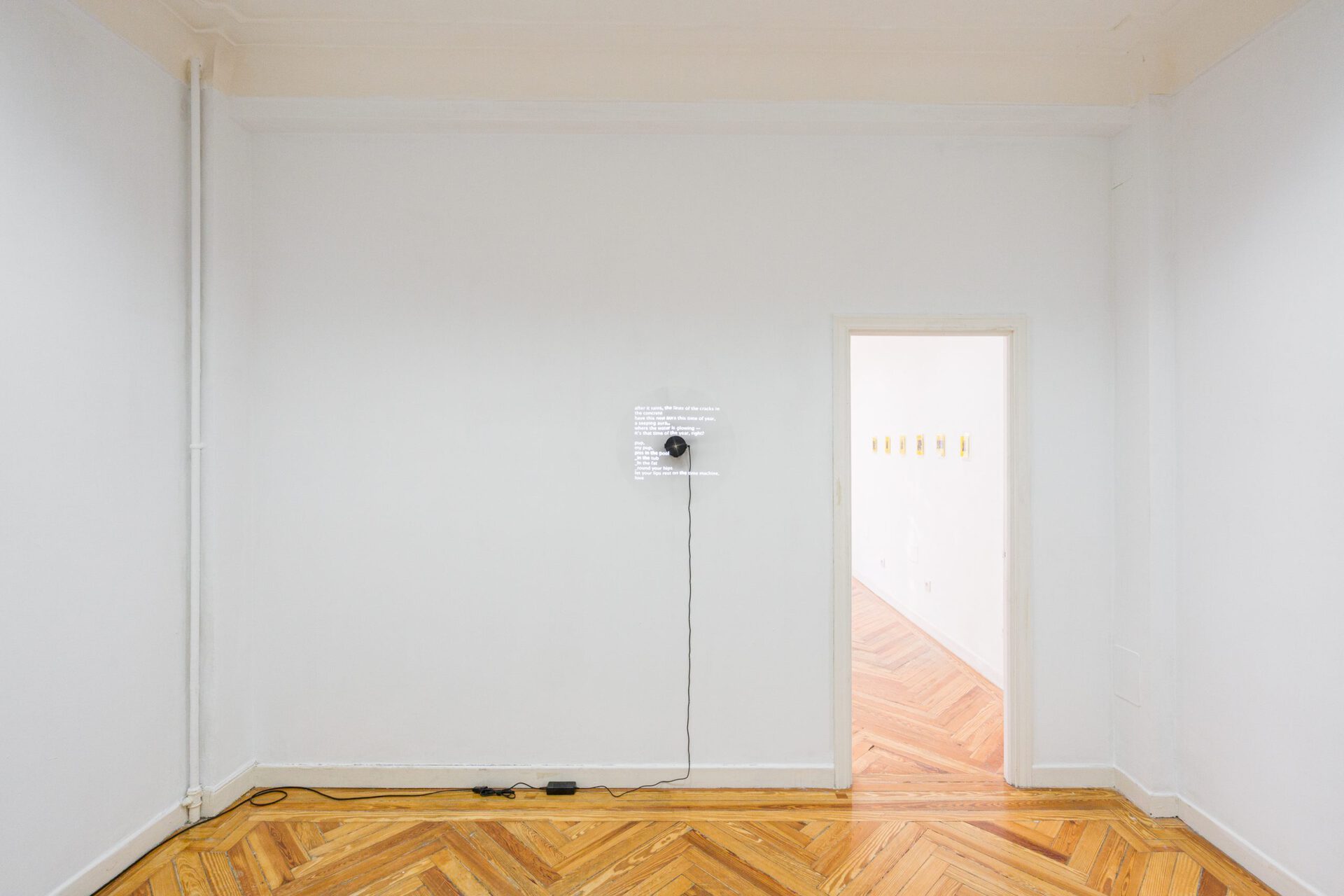
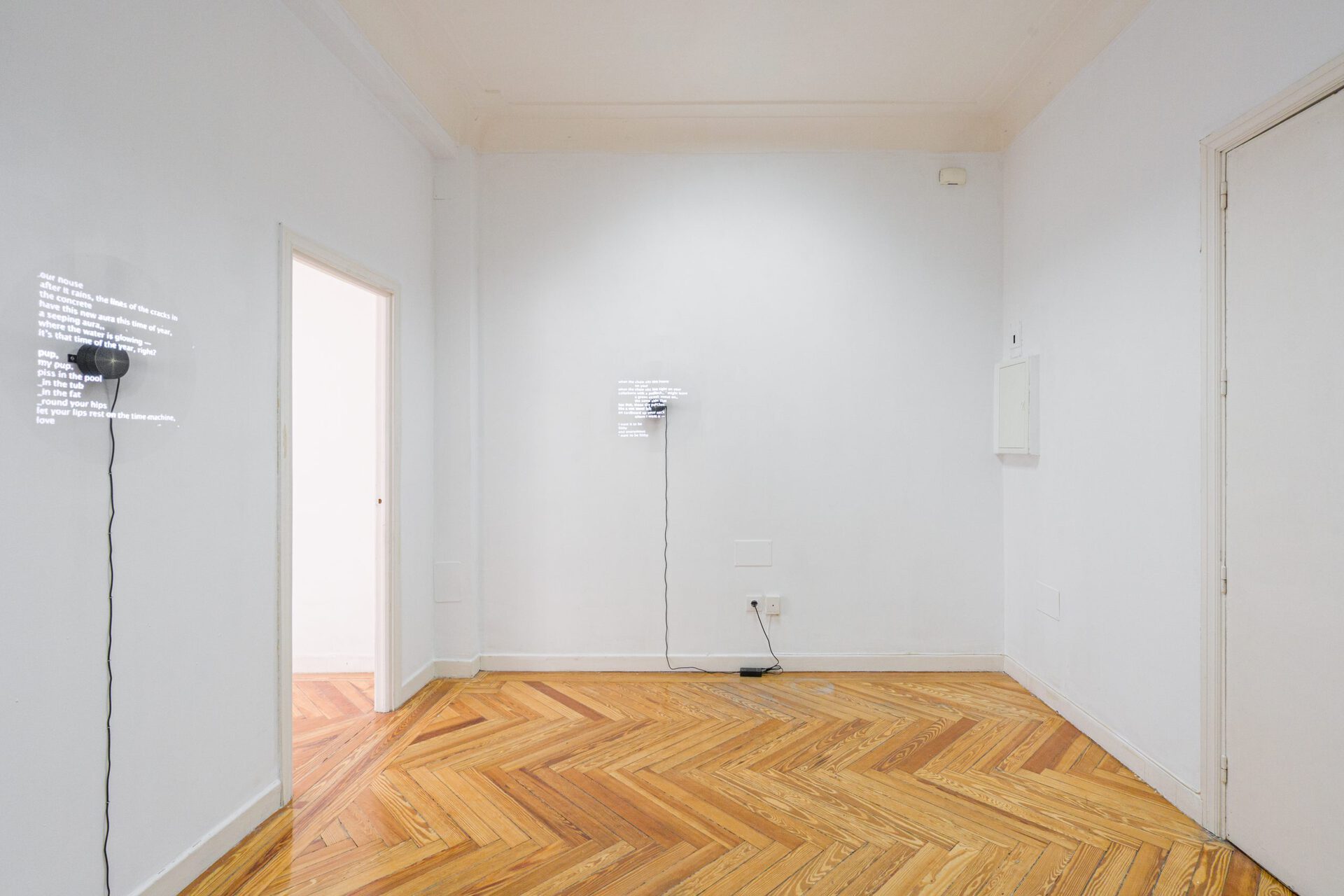
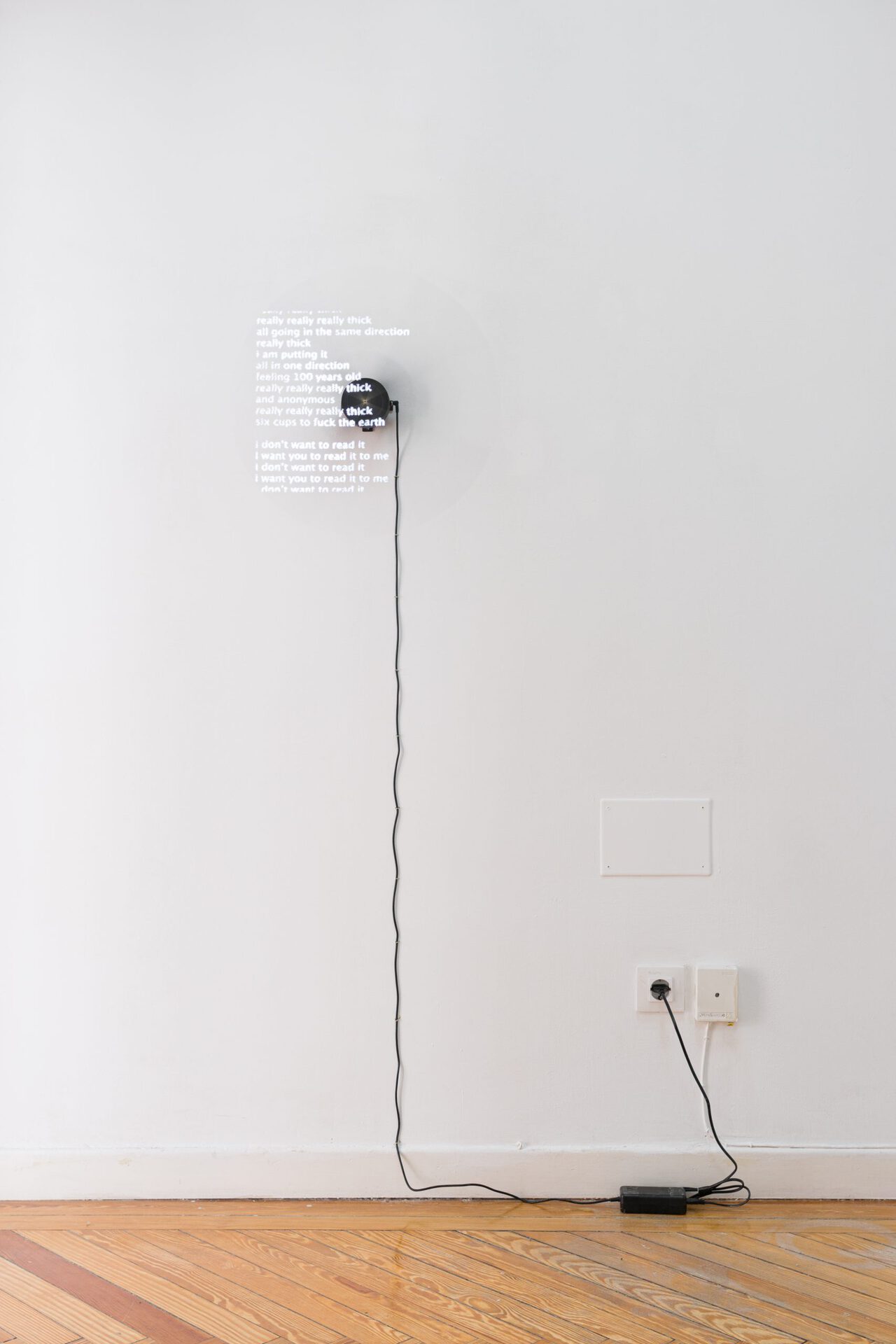
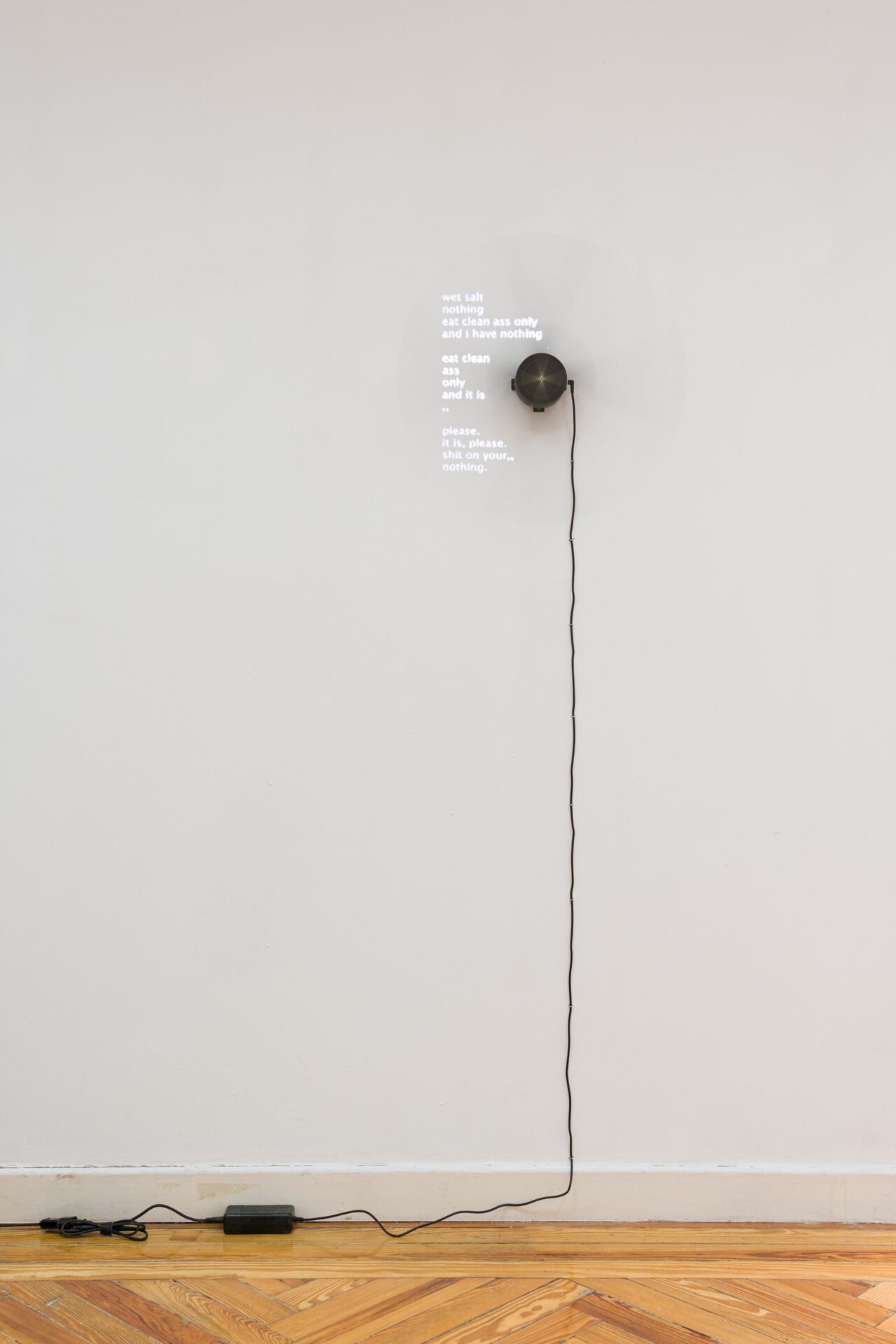
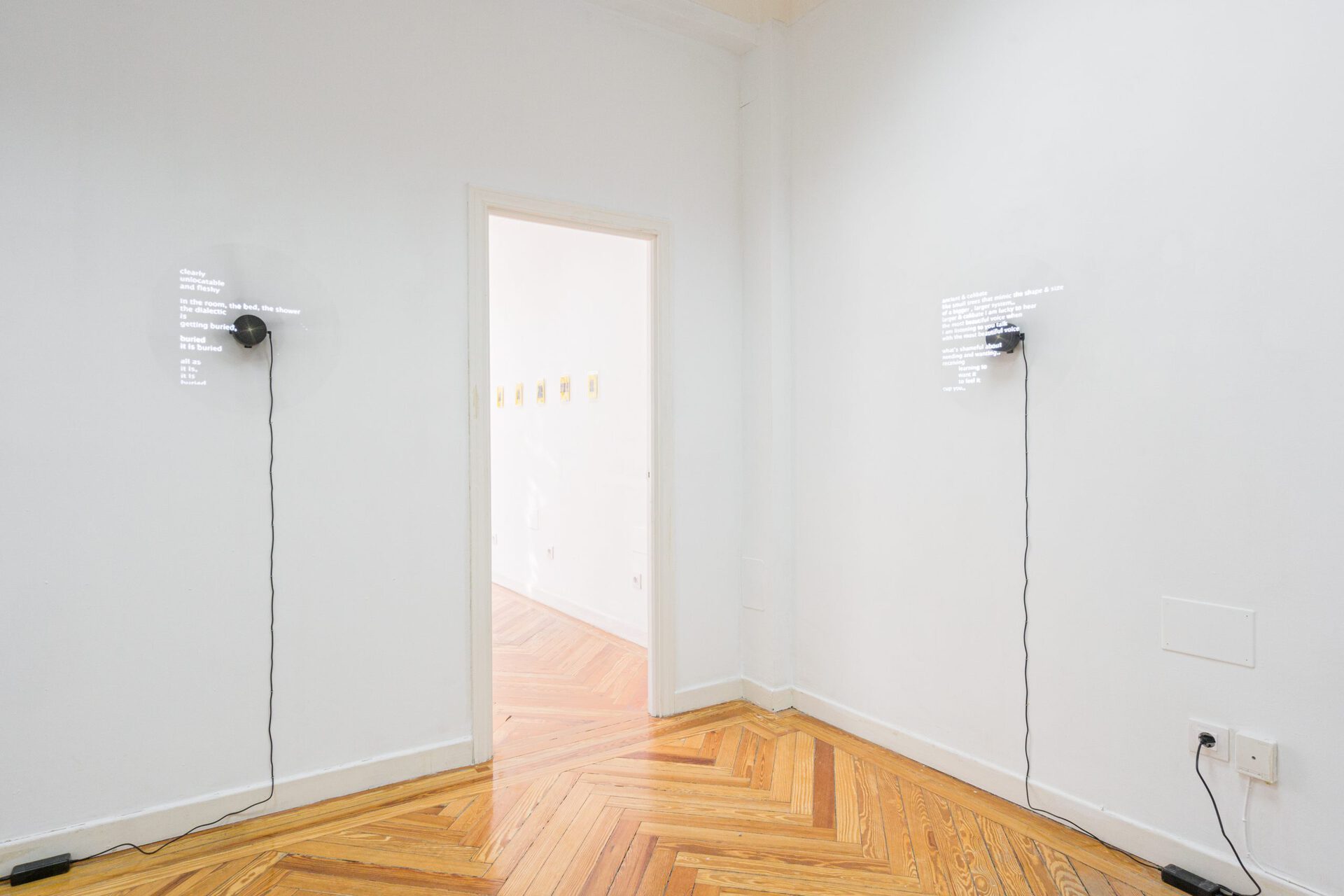
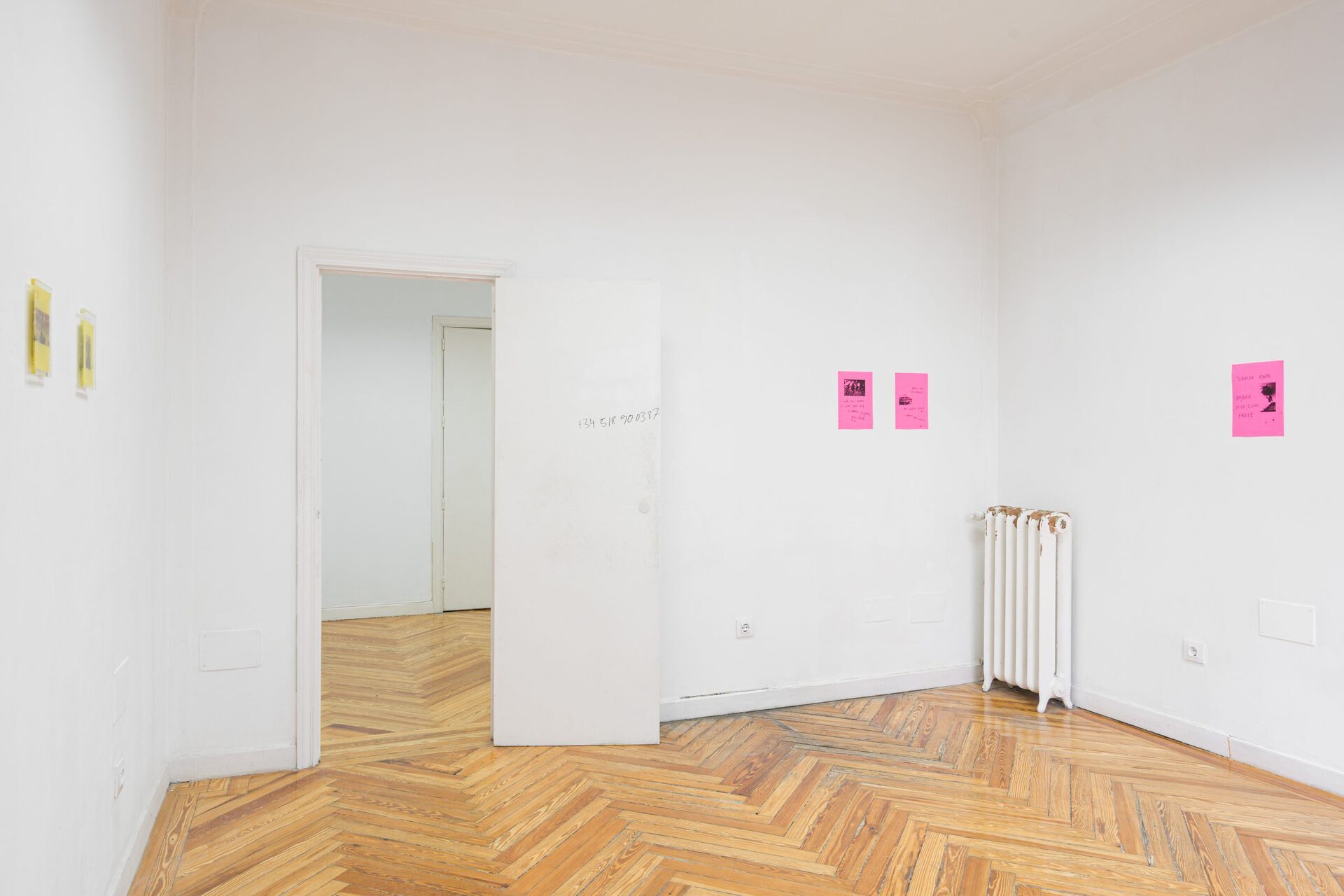
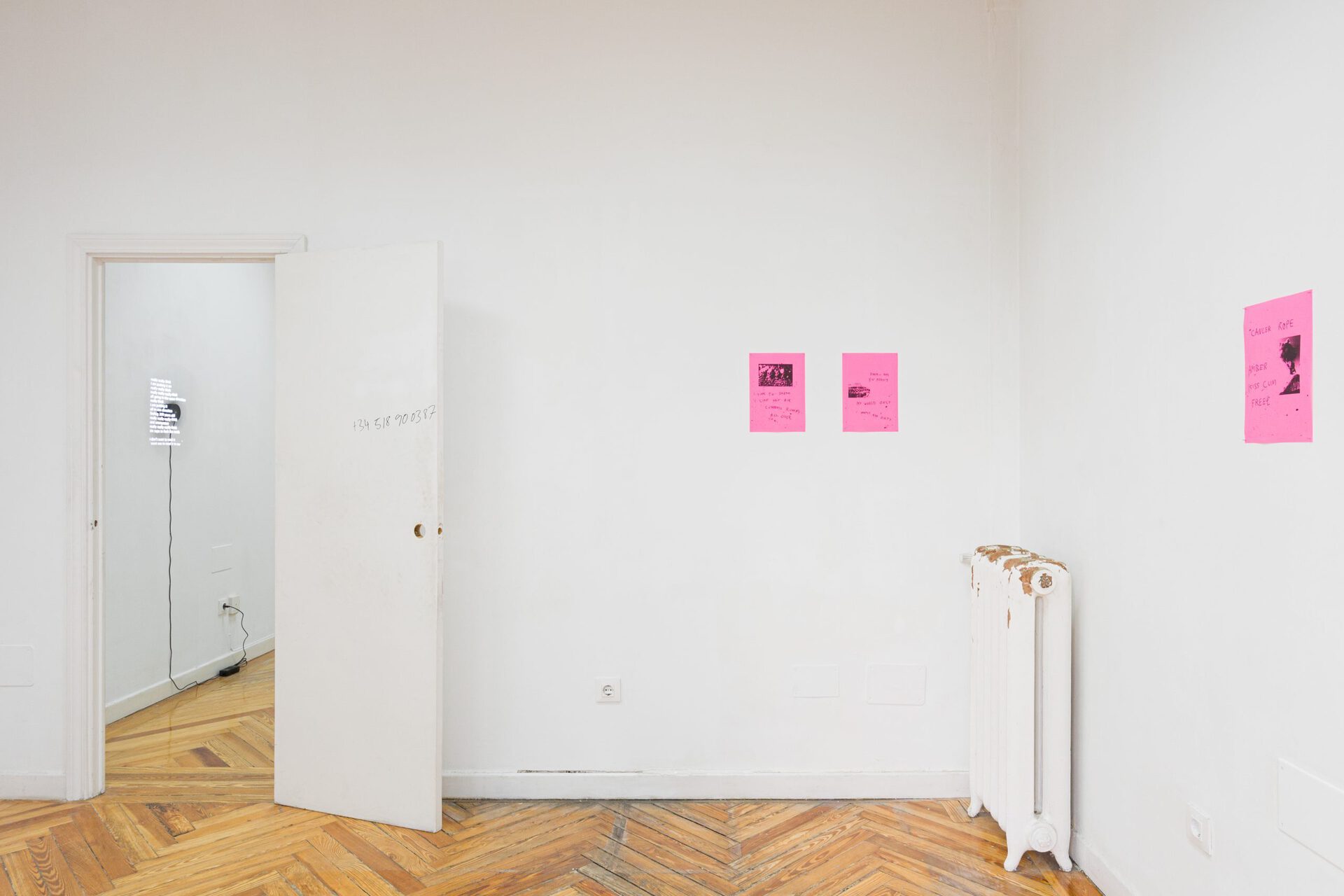
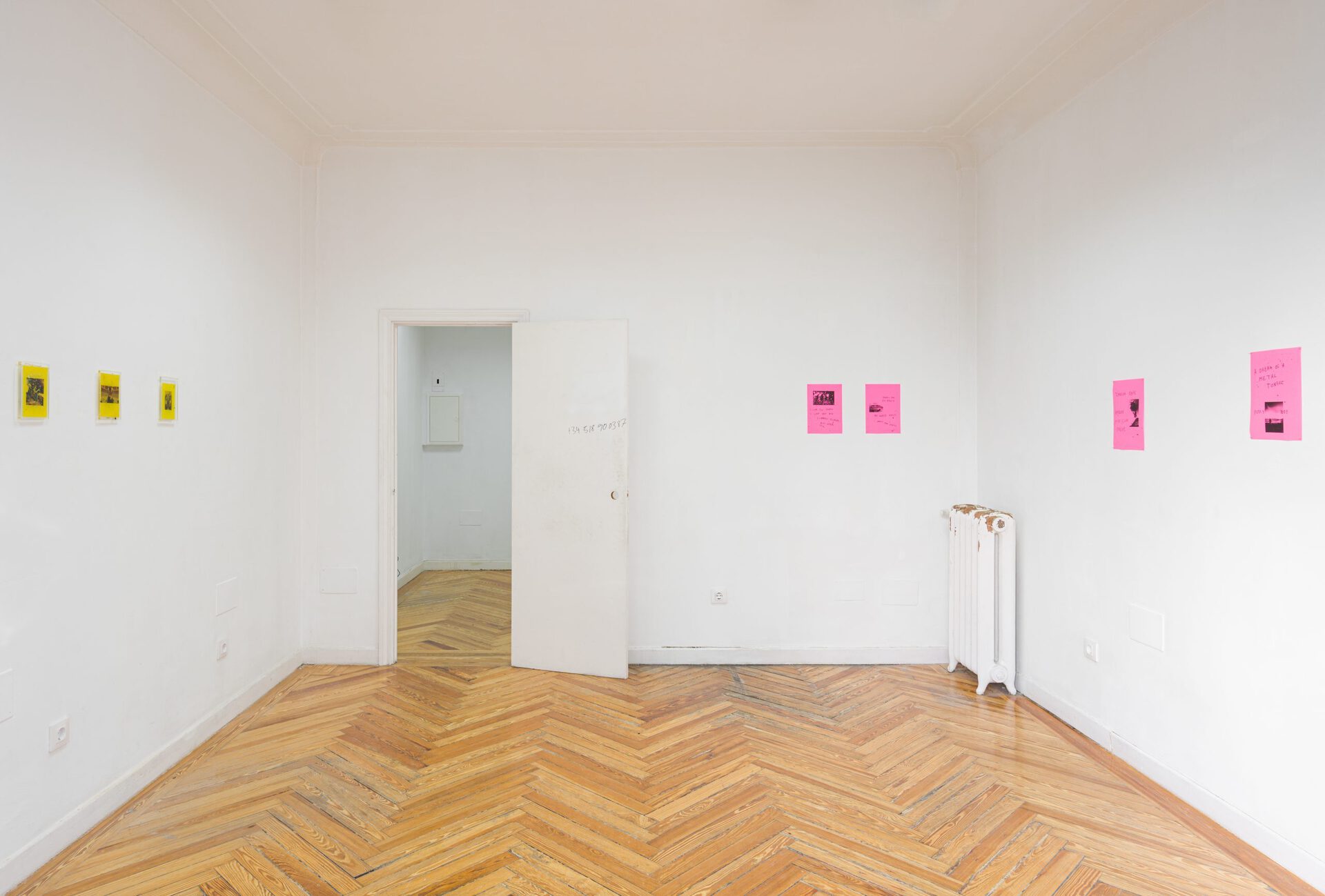
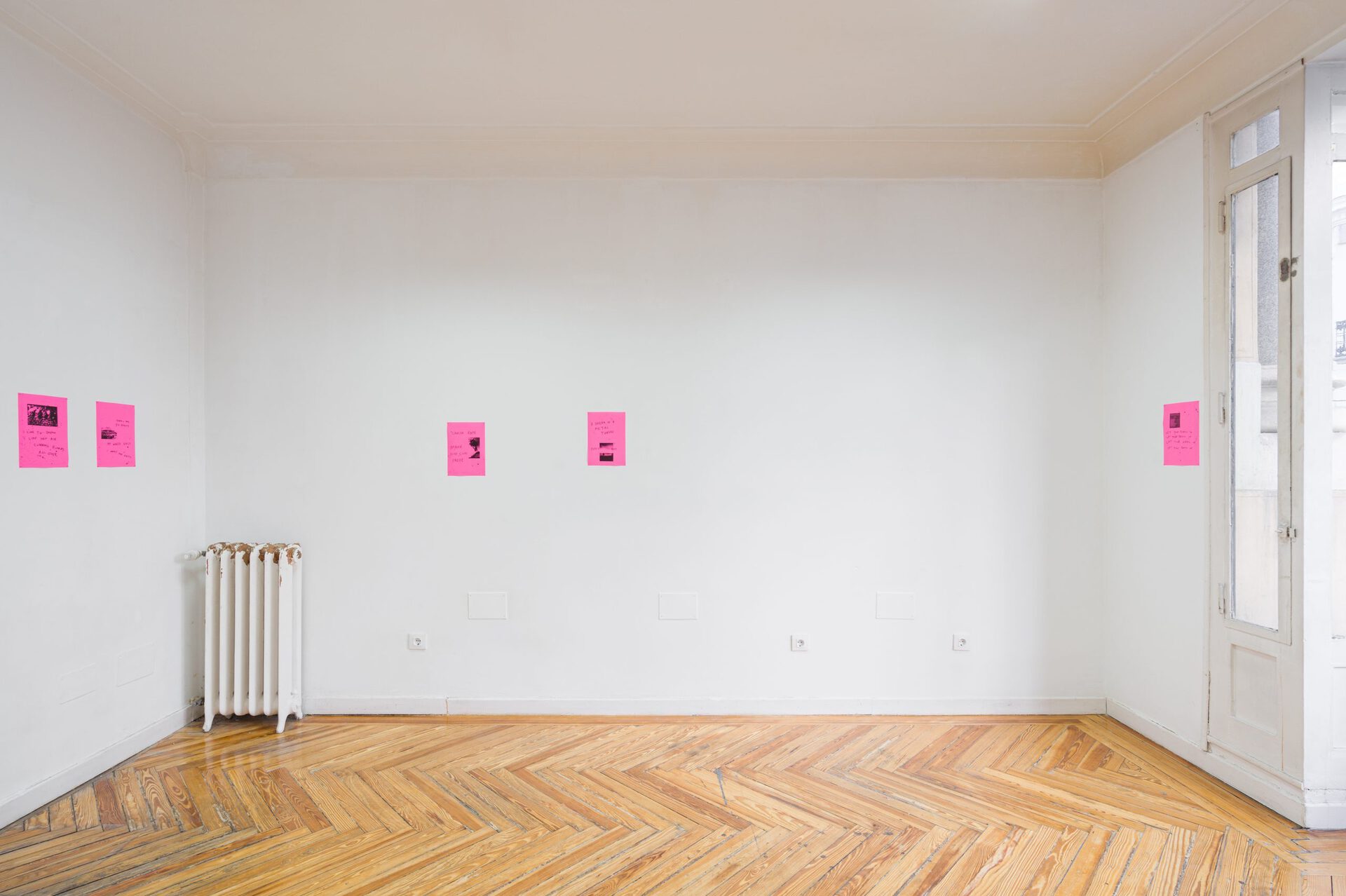
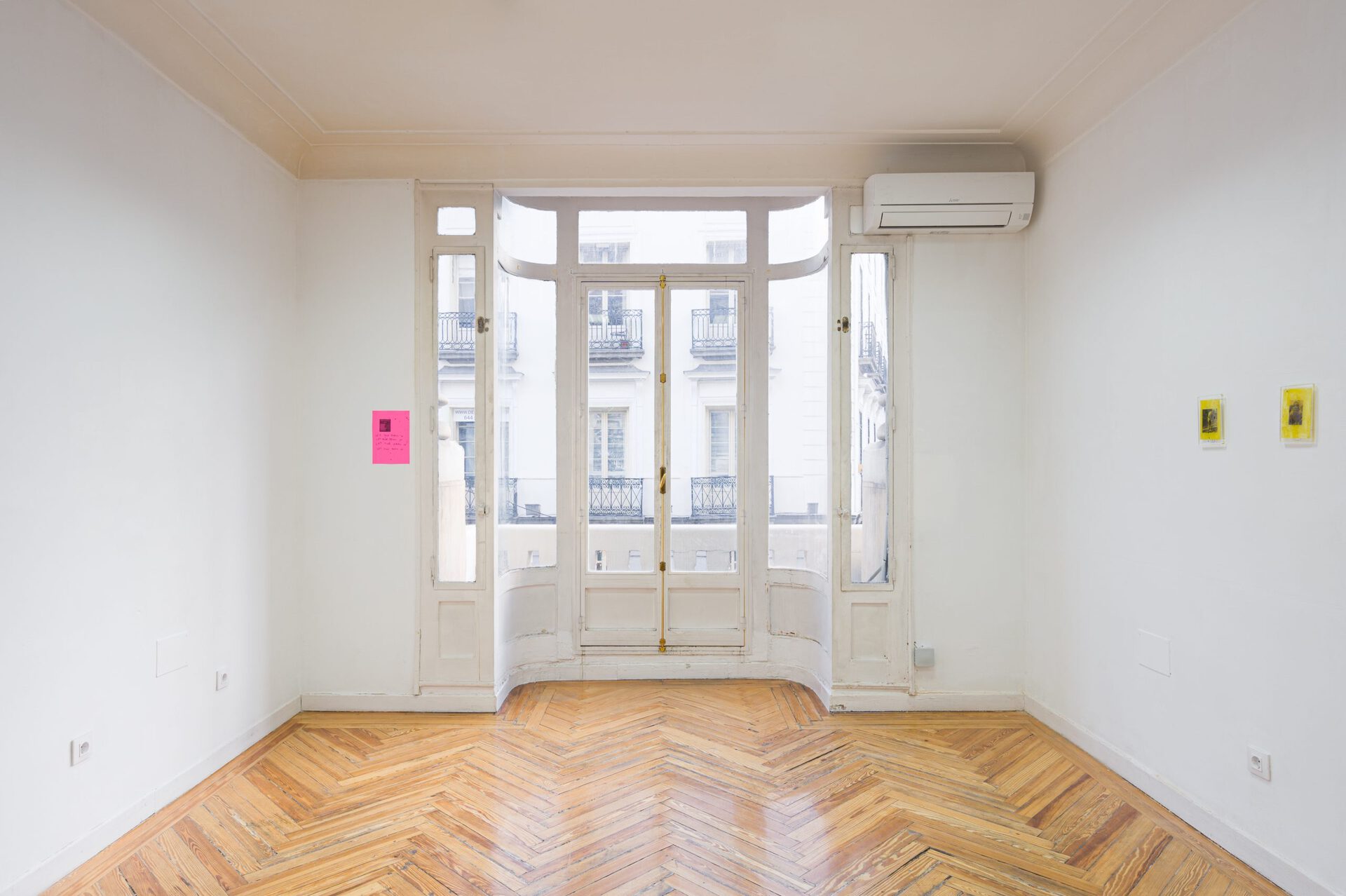
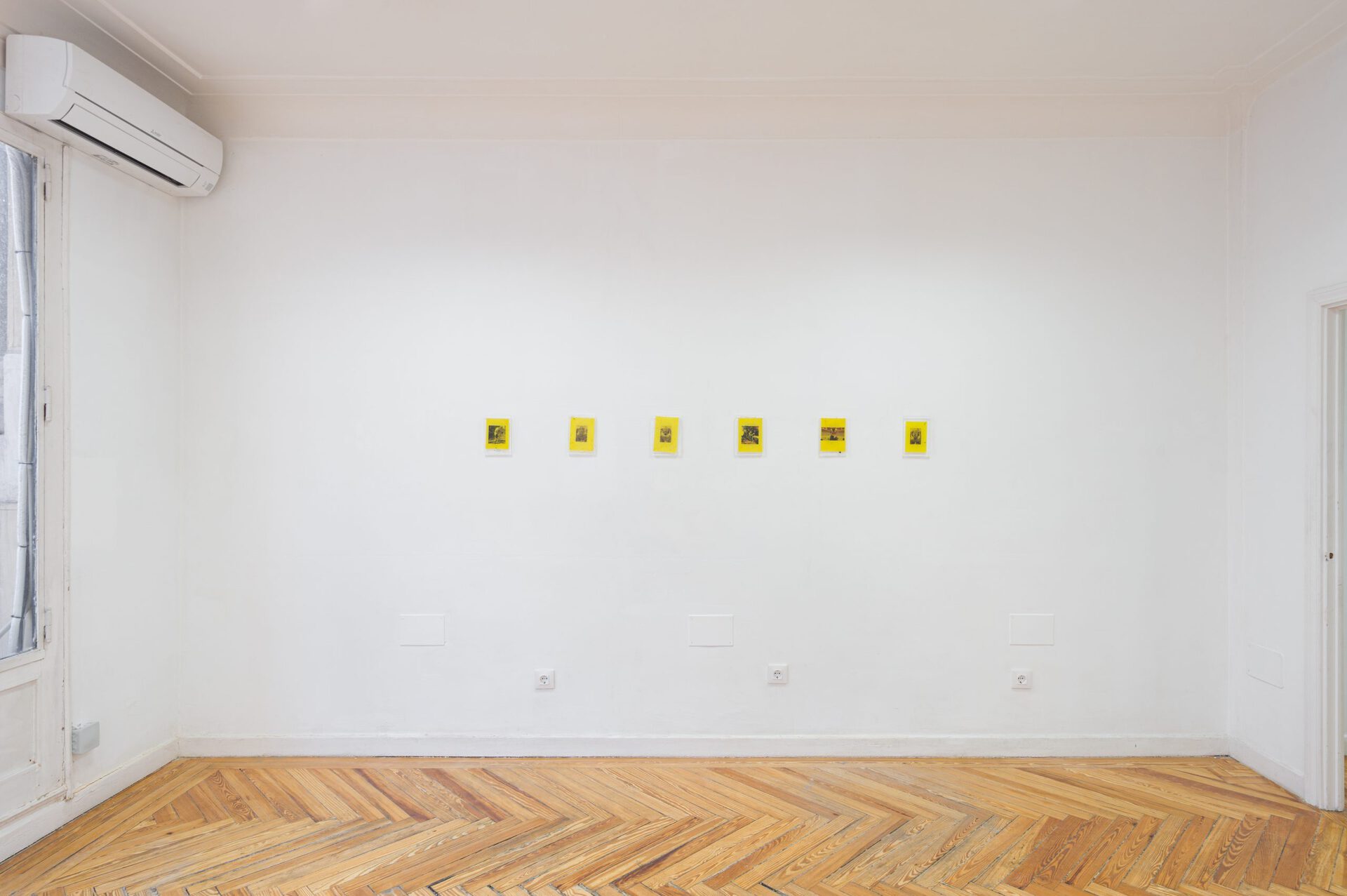
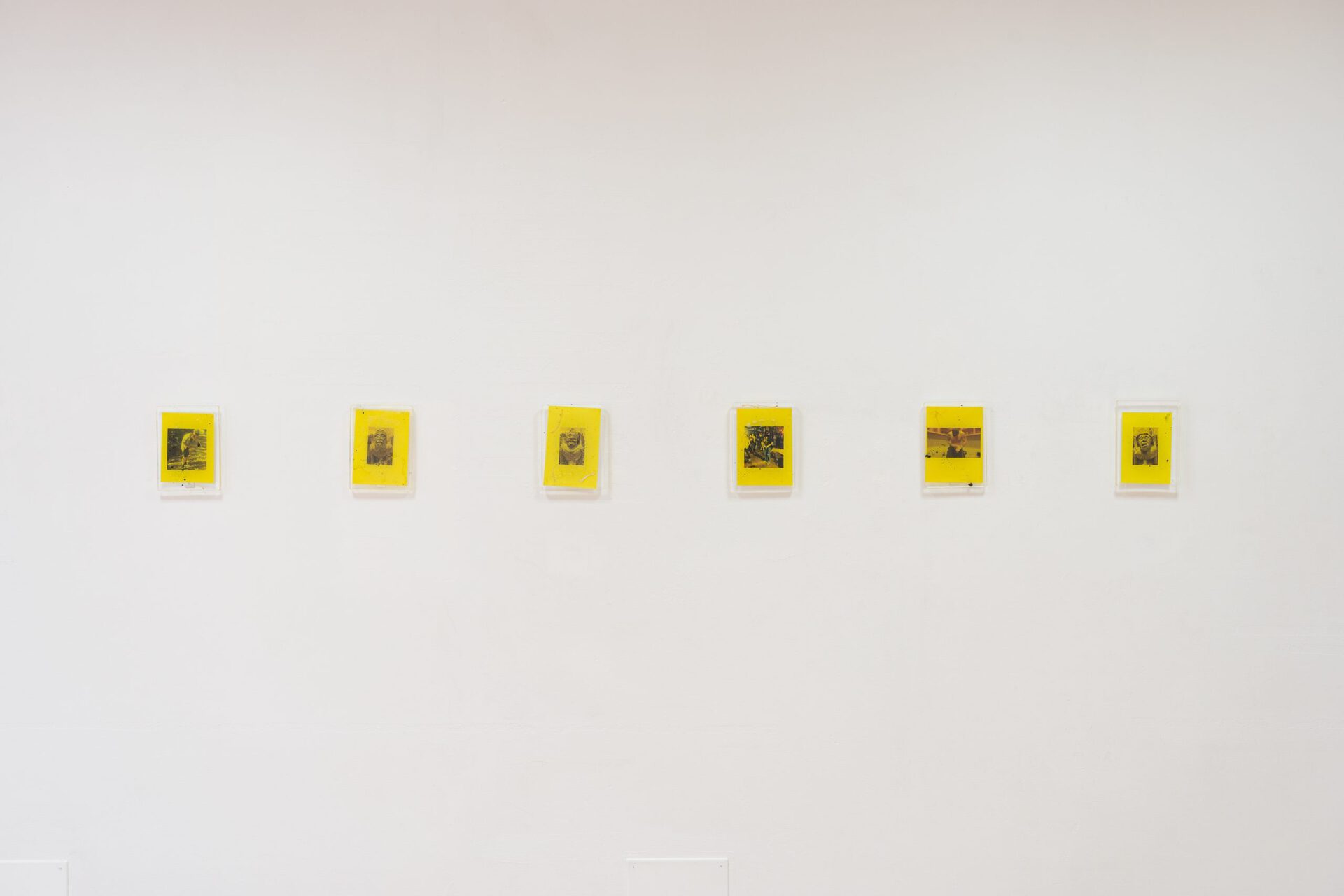
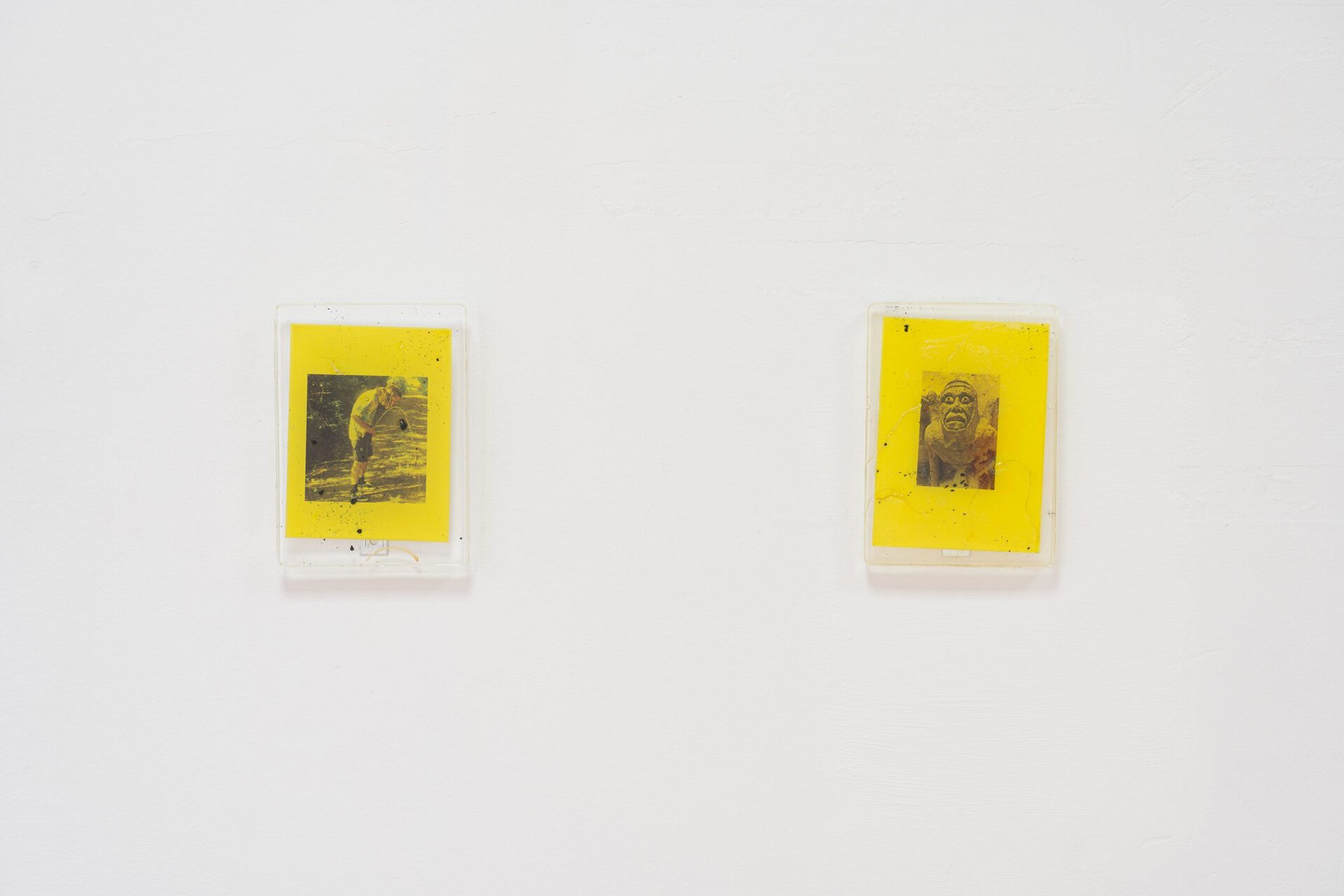
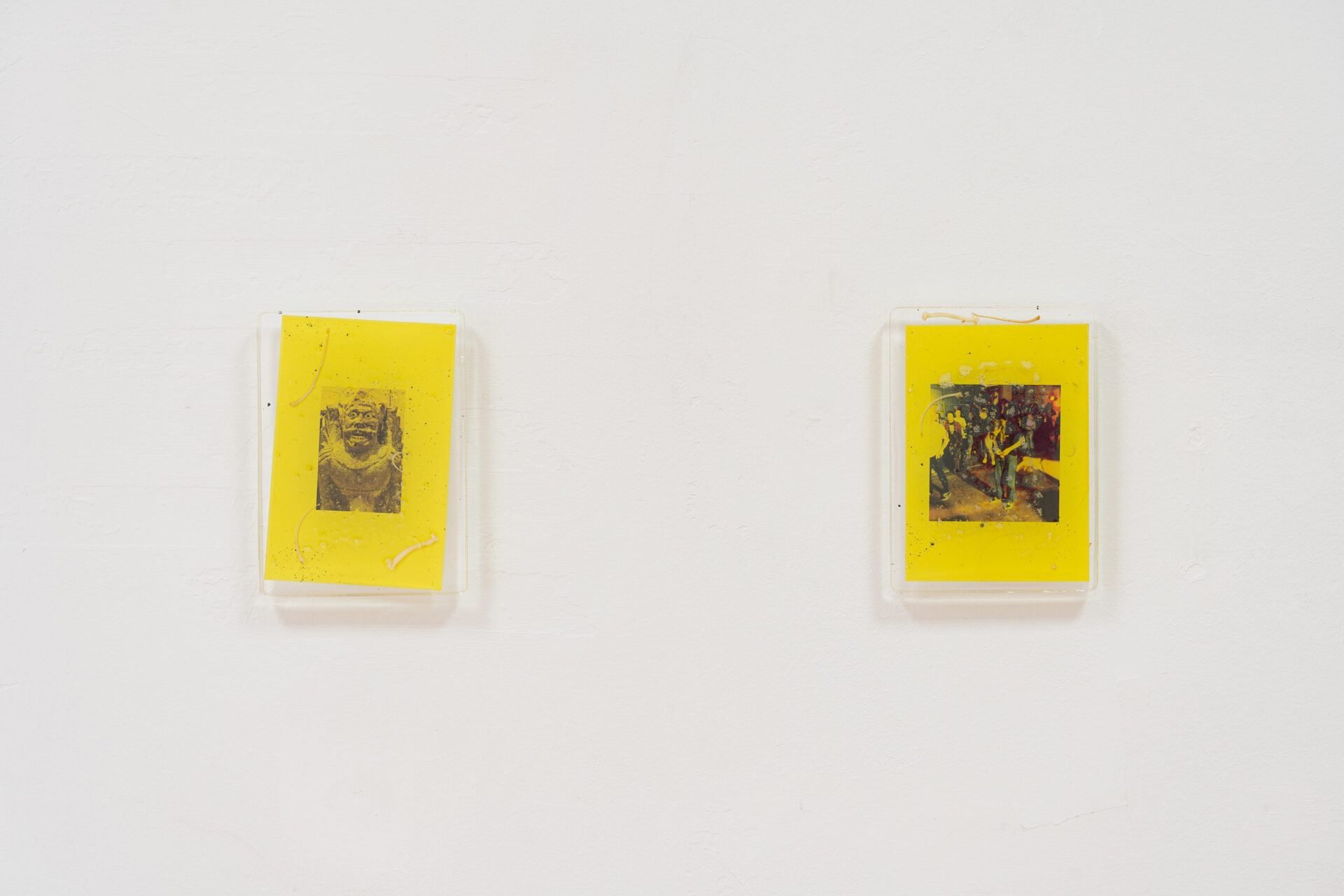
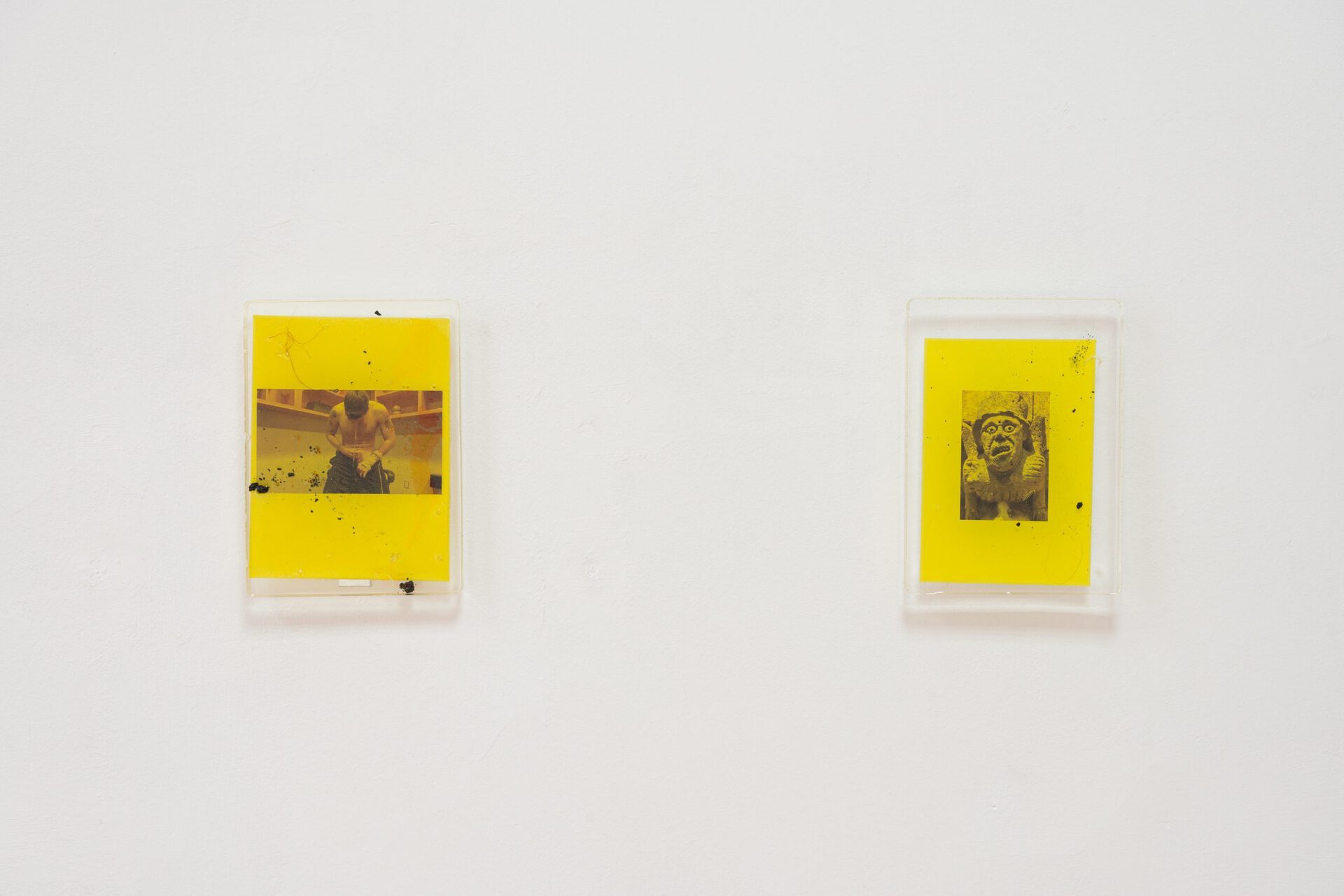
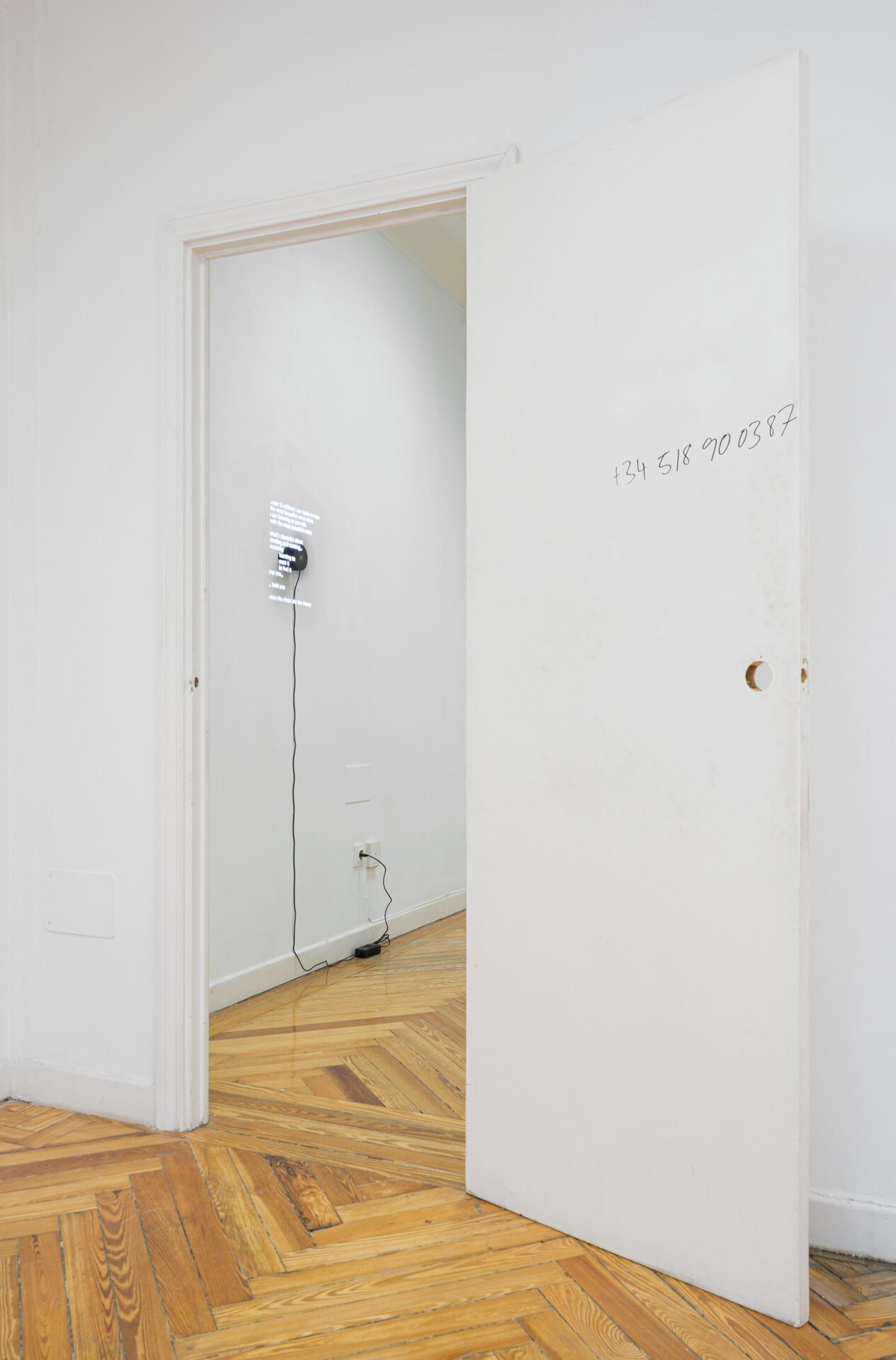
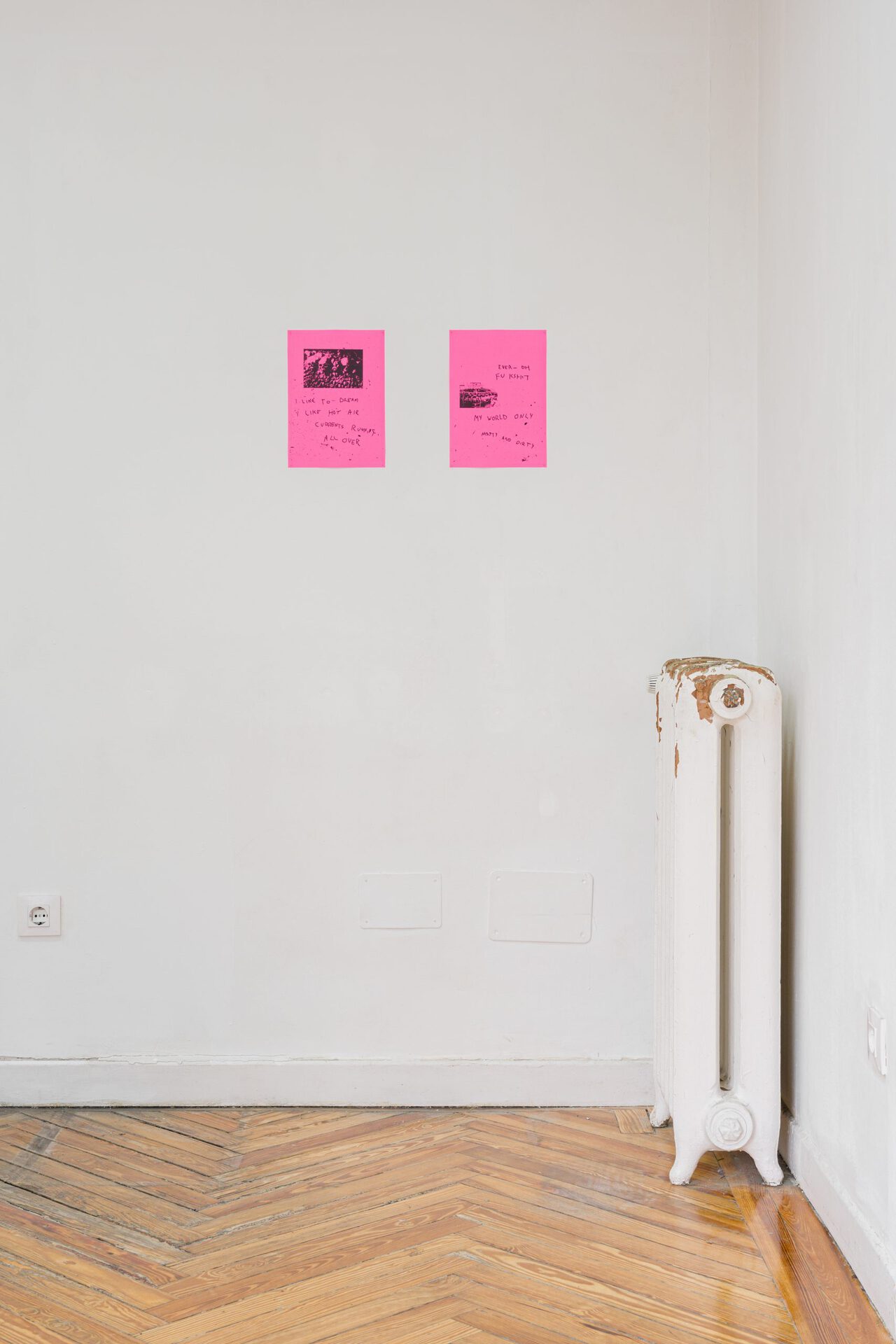
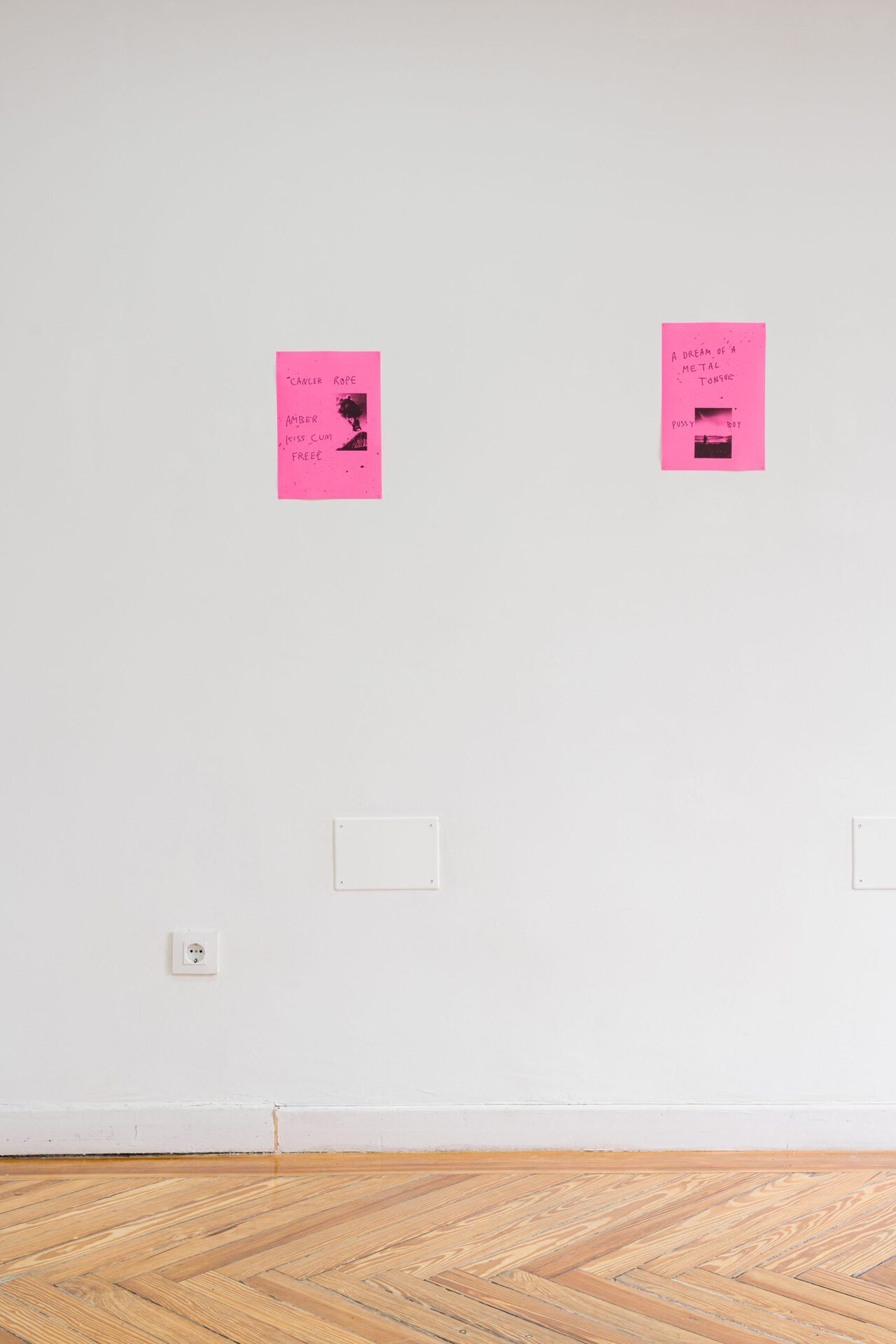
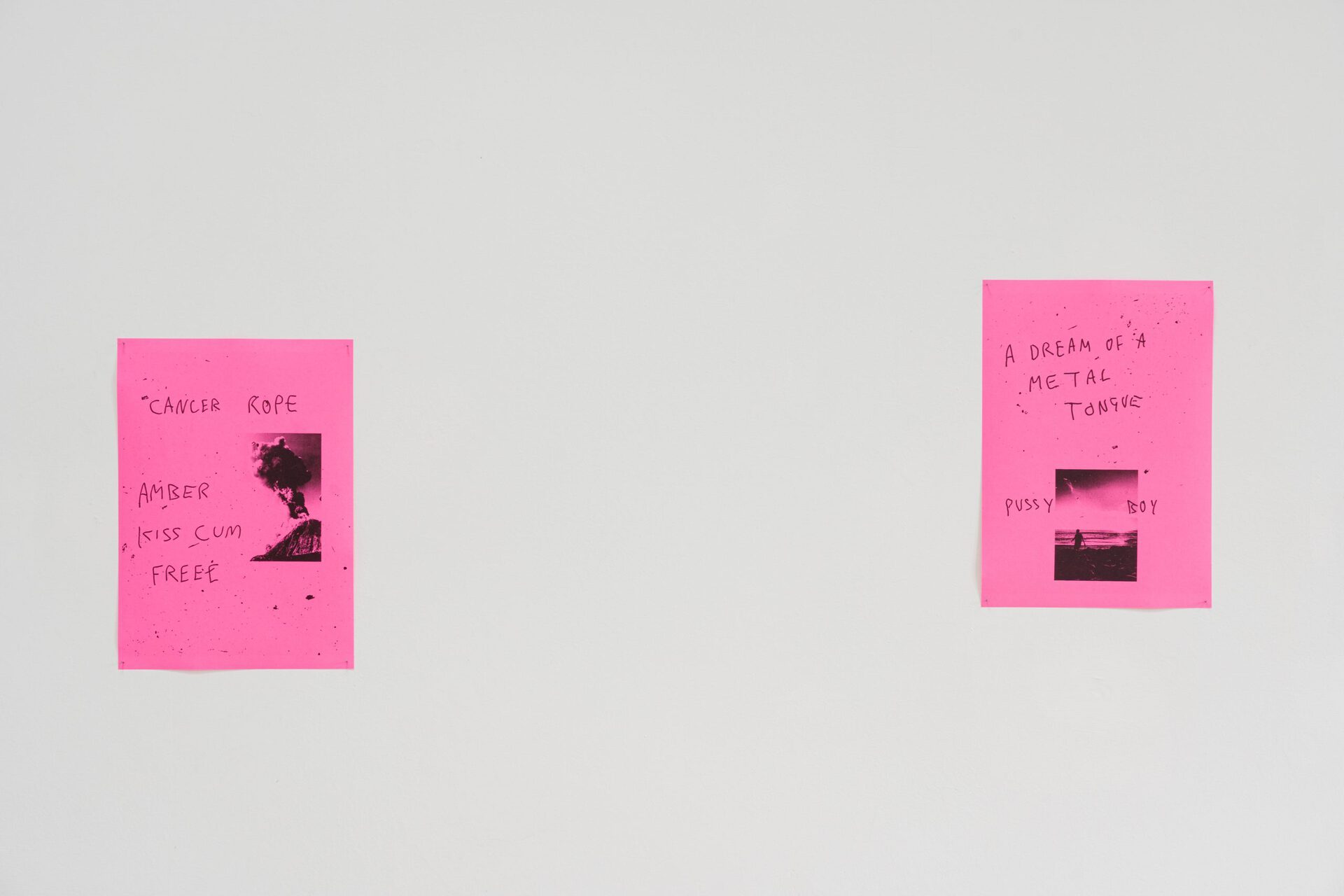
Location
Yaby, Madrid, SpainDate
16.12 –14.01.2022Curator
Beatriz Ortega Botas and Alberto Vallejo (Yaby)Photography
Alejandro CayetanoText
Recent Poems
P. Staff
The poems in this exhibition are recent, written between 2020 and 2021, and they take different forms: holograms, photocopies printed on neon pink paper, collage and voicemail. Across all of them, P. Staff points at recurring preoccupations such as the volatility of queer and trans intimacy and embodiment; human, animal and non-human relationships; illness, violence and solidarity. This being a poetry show, underlying all these themes are questions of reading and being read, of how much to reveal, for how long, from what distance, of how to make private experience legible, visible, audible.
In the small room there’s two poems reproduced on hologram fans, a visual architecture used for advertising that conceals its material mechanism by spinning its blades so fast that the eye can’t keep up — the text appears to be floating before the wall. Eat Clean Ass Only and Ancient and Celibate circulate damp and sexual images of jelly rubber dicks in showers, piss, sweat, saliva, tears, shit, grease hair and cum, flowing discharge and spectral corporeality that complicates its fixation in an image. Unlike historical technologies for erotic visual production (the kinetoscope or peep show), the hologram, rather than pull the gaze in through a wall, pushes its image outwards to the other side of the surface. This technique of vision based on impermanence, speed and circularity continues the scopic regime of the voyeur in producing a reality effect while forbidding contact, but it also disrupts its political territory by leaking these moving images into the very space from which they are desired and consumed.
The bigger room contains 5 pink printouts and 6 collages in resin. The images and text in the photocopies come from Staff’s personal notes, offcuts from research, the news and photos from their iPhone — there’s catacomb skulls, an industrial farming rape rack, white phosphorous munitions, a climate change day at the beach, an informational text on kidney function. They’re all part of Staff’s sustained study of the regulation of bodies through the violence of capitalist, technological and legal structures, and the urgency to create inhabitable futures. The collages show young white men pissing in their own mouths and stone gargoyles erotically gaping, weathered and damaged by acid rain. What is contaminated and residual is put back into circulation as a sub-product that affects the entire flow of the system, resurrected to find eloquence, grip and value for a specific community. Auto-pollution and destruction probe persistence and sustenance within closed circuits traversed by seduction and pleasure, by menace and infection. The color is yellow: the color of corrosive light, of jaundice, but also of gold and honey, sweat and piss — a vague color, as Johanna Hedva explains, untied from any fixed meaning, and thus capable of always varying its charge and function.
Handwritten on the door that divides the two rooms is a phone number; answering the call is a voicemail of Staff reciting their poem What Does Heaven Do? The phone call, the date, the voice in the ear and its duration produce proximity and a certain intimacy in the distance, a dreamlike state that seems volatile. The poem asks questions about heaven: what does it do, what could it do, what will it do... It asks about its promises, about its price, about eternity and damage, fleshlessness and flesh, love and sleep here on earth, illusion and negation, about life when it’s not given and life outside of life.